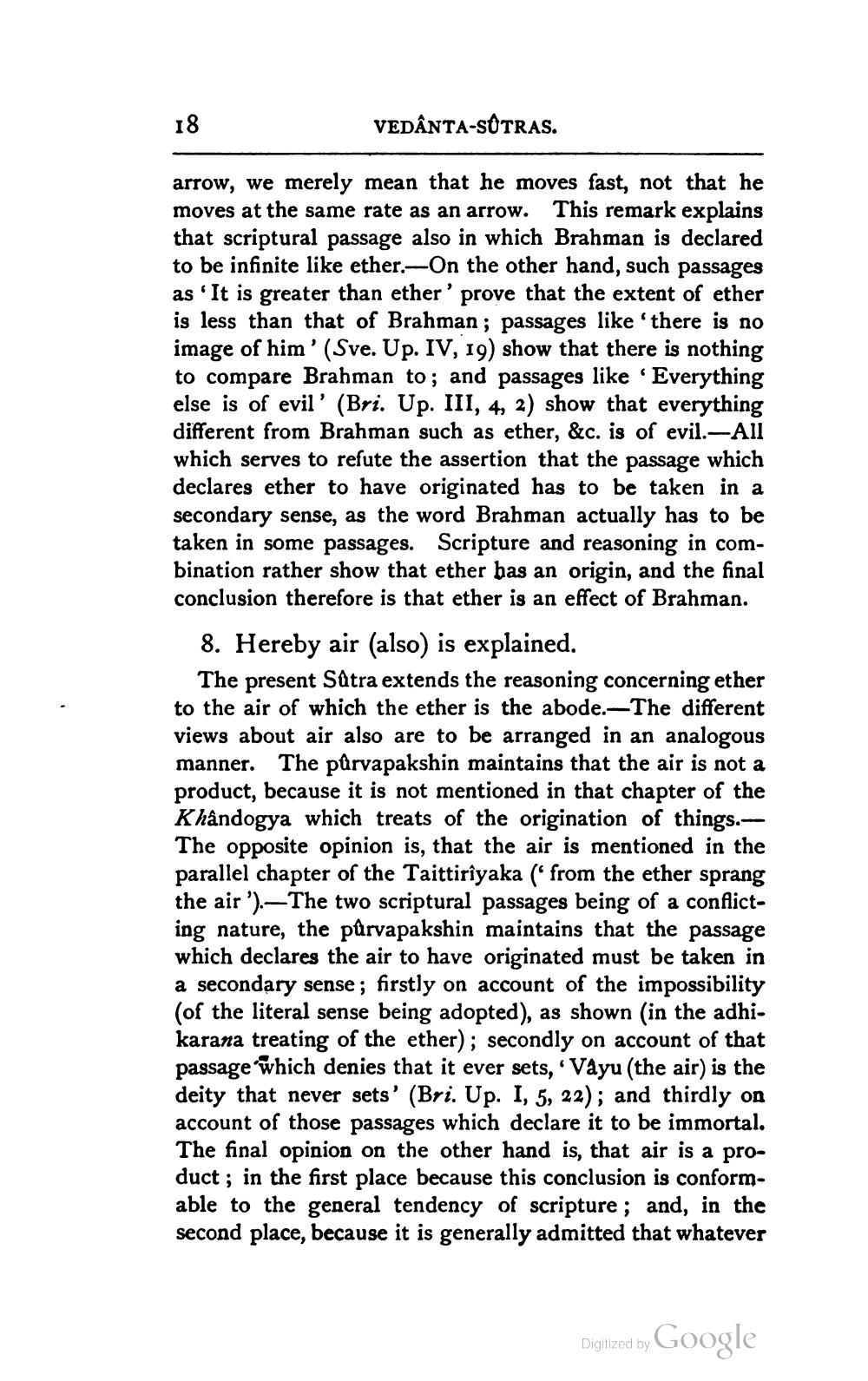________________
18
VEDÂNTA-SOTRAS.
arrow, we merely mean that he moves fast, not that he moves at the same rate as an arrow. This remark explains that scriptural passage also in which Brahman is declared to be infinite like ether. On the other hand, such passages as 'It is greater than ether' prove that the extent of ether is less than that of Brahman; passages like there is no image of him' (Sve. Up. IV, 19) show that there is nothing to compare Brahman to; and passages like 'Everything else is of evil' (Bri. Up. III, 4, 2) show that everything different from Brahman such as ether, &c. is of evil.-All which serves to refute the assertion that the passage which declares ether to have originated has to be taken in a secondary sense, as the word Brahman actually has to be taken in some passages. Scripture and reasoning in combination rather show that ether bas an origin, and the final conclusion therefore is that ether is an effect of Brahman.
8. Hereby air (also) is explained.
The present Sätra extends the reasoning concerning ether to the air of which the ether is the abode.-The different views about air also are to be arranged in an analogous manner. The purvapakshin maintains that the air is not a product, because it is not mentioned in that chapter of the Khandogya which treats of the origination of things.The opposite opinion is, that the air is mentioned in the parallel chapter of the Taittiriyaka (" from the ether sprang the air ').—The two scriptural passages being of a conflicting nature, the purvapakshin maintains that the passage which declares the air to have originated must be taken in a secondary sense; firstly on account of the impossibility (of the literal sense being adopted), as shown in the adhikarana treating of the ether); secondly on account of that passage which denies that it ever sets, 'Vayu (the air) is the deity that never sets' (Bri. Up. I, 5, 22); and thirdly on account of those passages which declare it to be immortal. The final opinion on the other hand is, that air is a product; in the first place because this conclusion is conformable to the general tendency of scripture ; and, in the second place, because it is generally admitted that whatever
Digitized by
Digilzed by Google




